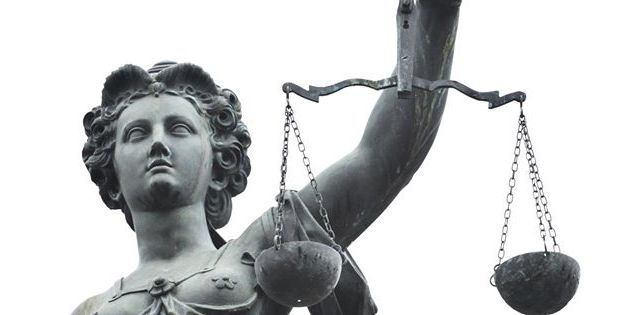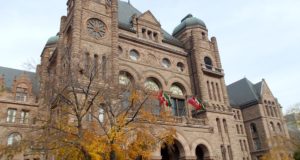Earlier this month this Supreme Court of Canada held that there is a blanket constitutional right to access the civil courts. The decision in Trial Lawyers Association of British Columbia v. British Columbia (Attorney General) did not make huge headlines when it was released on October 2, but it probably should have. The Supreme Court has done something truly unprecedented in the history of Canadian constitutional jurisprudence. It has fashioned a new individual right out of whole cloth and has anchored that right in the strangest of places – not in the Charter of Rights and Freedoms, but in section 96 of the Constitution Act, 1867, which simply grants the attorney general the power to appoint judges to the superior courts in each province.
Trial Lawyers Association began as a custody dispute in British Columbia. The mother went to court to have the issue resolved and, pursuant to B.C.’s Court Rules Act and Supreme Court Rules, was forced to pay a “hearing fee,” which amounted to approximately $3,600. The trial judge found that hearing fee requirement was unconstitutional since it approached the net monthly income of the plaintiff’s family. The Court of Appeal agreed with the trial judge and the matter was appealed to the Supreme Court. Five of the seven judges on our highest court agreed that the hearing fee was unconstitutional.
Section 96 of the Constitution Act, 1867 reads: “The Governor General shall appoint the Judges of the Superior, District, and County Courts in each Province, except those of the Courts of Probate in Nova Scotia and New Brunswick.” It does not take a celebrated legal scholar to recognize that the section says nothing whatsoever about a right to access the courts. To be sure, the section should not be interpreted strictly. The necessary implication of section 96 and its surrounding sections in the “Judicature” part of the Constitution Act, 1867 is that the superior courts are established institutions in our constitutional democracy; and for this reason the Supreme Court has long been of the view that any government measure that undermines the “core jurisdiction” of the superior courts is unconstitutional. For example, if Parliament tomorrow abolished actions for breach of contract, this would remove a integral part of what the superior courts were designed to do in the first place: resolve private law disputes.
Historically, the “core jurisdiction” of the superior courts was understood in relatively narrow terms and a measure would not be declared unconstitutional unless it “emasculates the court, making it something other than a superior court.” To this end, the Court had established a strict three-part test to be applied in the face of government measures that potentially threatened a court’s inherent jurisdiction. Trial Lawyers Association represents a dramatic departure from this approach. The majority ignored its own test, and instead offered an implausibly expansive interpretation of section 96.
The majority reasoned that, since superior courts exist to resolve disputes, “[m]easures that prevent people from coming to the courts to have those issues resolved are at odds with this basic function.” As the lone dissenter, Justice Rothstein, pointed out, this is a “novel reading” of section 96 that is completely out of step with prior case-law or a plain reading the section. A hearing fee scheme is simply a financing mechanism; it does not “emasculate” the court or alter its “essential character” as a judicial body.
The majority also relied on the “rule of law,” which it argued is inextricably linked to access to justice, since “[i]f people cannot challenge government actions in court, individuals cannot hold the state to account – the government will be, or be seen to be, above the law.” With respect, this a complete straw-man argument since there was no evidence before the court that, as a result of the hearing fee scheme, “people” were no longer able to “challenge government actions in court.” Indeed, it is the majority’s own decision that jeopardizes the rule of law, which demands that courts apply the law that has been enacted. As Justice Rothstein correctly summarized, “the rule of law does not demand that this Court invalidate the hearing fee scheme – if anything, it demands that we uphold it.” To put it another way, the Court cannot rely on the rule of law to ignore a legal rule.
The basic problem with the majority’s reasoning is that it confounds an institutional requirement with an individual right. Whatever section 96 requires, it strains the bounds of reason to suggest that it protects an individual right. Section 96 was originally enacted as part of the BNA Act in 1867, long before Canada had a Charter and constitutionally protected individual rights. It may be the case that our courts cannot function as judicial bodies if they are generally inaccessible. However, no evidence was before the court on this point. Even if we accept that the individual plaintiff in this case was not able to afford the court hearing fee, there was no evidence that the courts are not available or accessible to Canadians as a whole; and absent such a finding, there is simply no basis to find a violation of section 96 or the “rule of law.”
Reading section 96 as protecting an individual right to access the courts would also lead to a patent absurdity, as Justice Rothstein highlighted in his powerful dissent. Since the right is anchored in section 96, it is not subject to the “reasonable limits” set out in section 1 of the Charter. In other words, the individual’s right to access the courts arguably now enjoys greater protection than freedom of religion and expression, equality under the law or the right not to be deprived of life, liberty or security of the person except in accordance with the principles of fundamental justice. The upshot is that any individual who is not reasonably able to access the courts has suffered a violation of his or her rights. The logical extension of this proposition is that the government now has a positive obligation to provide financial legal aid to anyone who wishes to pursue a meritorious claim, lest that person be denied his or her constitutionally protected right of access to justice.
The great irony of Trial Lawyers Association is that by conferring a constitutional right of access, the majority may have unwittingly hindered the the ability of the courts to function as an accessible institution. The largest hurdle facing the public’s access to the courts today is most certainly not hearing fees – it is a clogged system that lacks sufficient resources to hear and dispose of claims in a timely manner. By deeming British Columbia’s hearing fee scheme unconstitutional, the Court has potentially exacerbated this problem by eliminating the government’s chosen method of raising revenue and of discouraging frivolous claims.
The majority conceded that not all hearing fees would be unconstitutional, only those that impose “undue hardship.” But who is to say when hardship becomes undue? Even if section 96 did guarantee an individual right of access, it is difficult to see how that right of access was infringed in the instant case. The hearing fee of $3,600 for a 10-day trial is hardly excessive and the presiding judge has discretion not to apply it. Most importantly, the hearing fee may be claimed as a disbursement at the end of trial, meaning that if the plaintiff is successful, she can recover it from the defendant.
But this of course misses the larger point. A court hearing fee has all the hallmarks of a policy choice that is properly within the domain of the legislature. Whether and to what extent they impose too great a burden should be a matter for the people’s representatives who are tasked with studying the issue and crafting the appropriate rule. The court’s role is to dispense justice efficiently and effectively; it is not to question the wisdom of a financing scheme. The rule of law and the public’s confidence in the judicial system will survive the imposition of a court hearing fee, but neither is well-served by a judiciary that interprets the Constitution based, not on what it says, but on what the judges believe it ought to say.
 Advocates for the Rule of Law
Advocates for the Rule of Law



